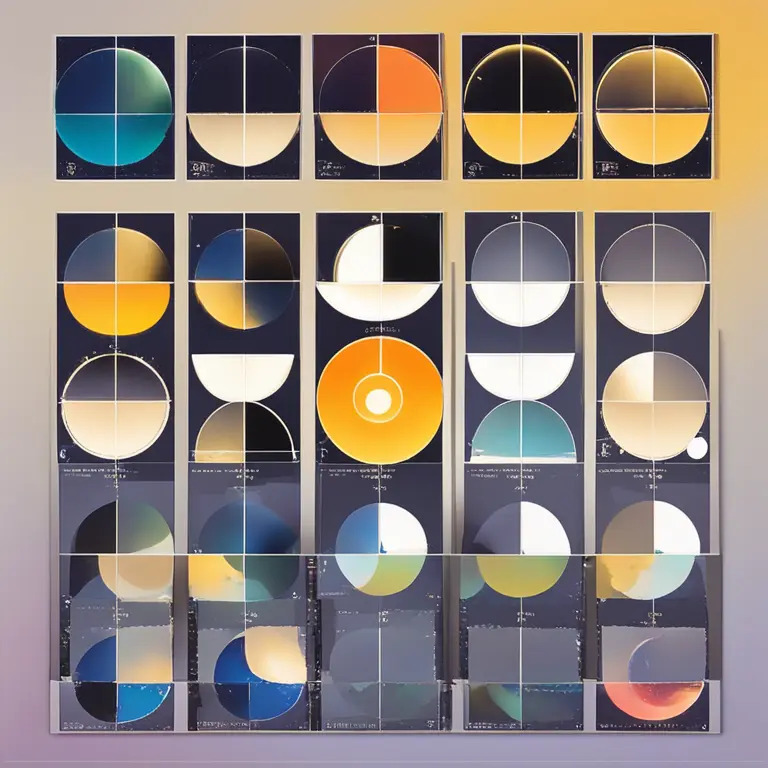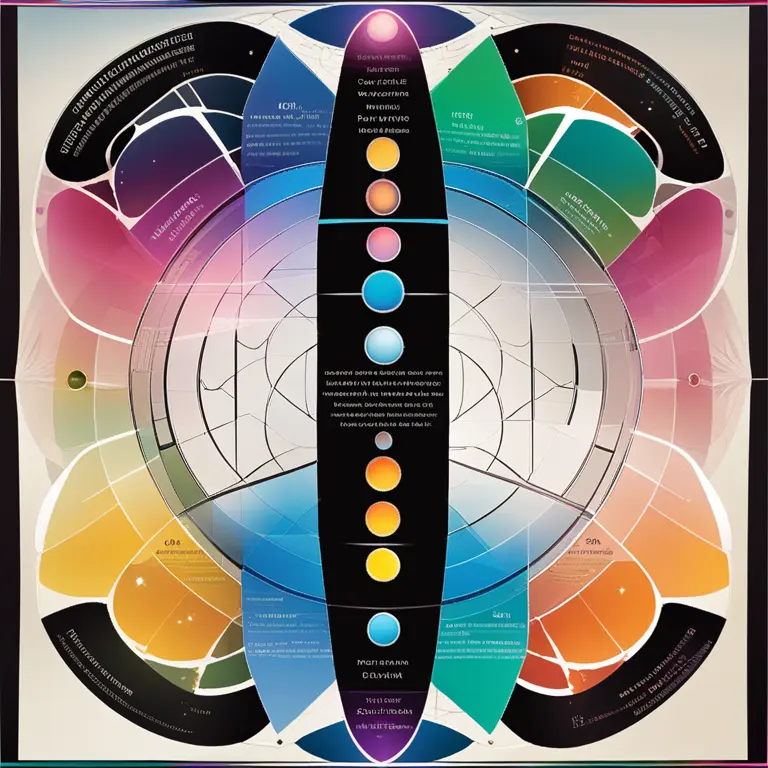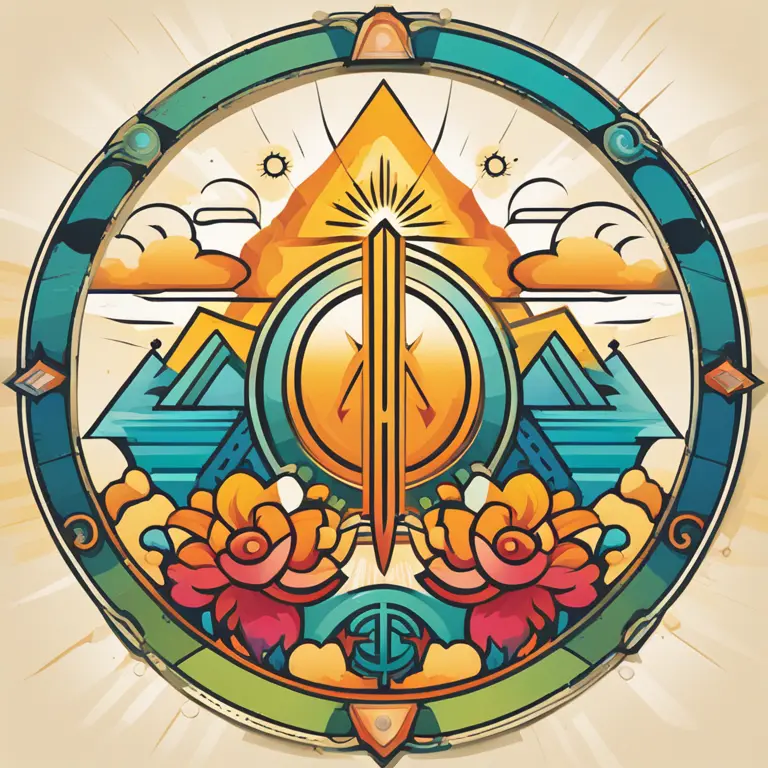
The Zodiac Matrix: Birth Charts and Astrological Signs
Delve into the mysteries of birth charts and astrological signs to discover the celestial influences on your personality and destiny.
article by Priya Deshmukh
Birth Charts: Celestial Snapshots
Understanding a birth chart starts with envisioning it as a cosmic snapshot of the sky at the moment of one's birth. This celestial map is divided into 12 houses, each symbolizing different facets of life, and is populated by planets and zodiac signs. Astrologers interpret this complex diagram to assess character, potential, and life events. The position of the sun, moon, and rising sign, or ascendant, play key roles in shaping one's personality profile and are the first points a learner might grasp in the study of astrology.

Significance of the Sun Sign
Among the components of the birth chart, the sun sign is perhaps the most renowned. It reflects your core identity, ego, and the driving force behind your actions. This is influenced by the sun's position within one of the twelve zodiac signs on your birth date. In contemporary horoscopes, it's often what individuals refer to when they mention their astrological sign, providing a broad overview of someone's inherent traits and potential path in life.

The Moon's Emotional Imprint
The moon's placement in birth charts provides insights into the emotional inner workings of an individual. It unveils our instinctual reactions, unconscious pre-dispositions, and what comforts and nurtures us. The zodiac sign hosting the moon at your birth adds a layer of emotional coloring and depth, influencing how you feel and respond to the world around you.

Rising Sign: Life's First Impression
The rising sign, or ascendant, represents the zodiac sign that was emerging on the eastern horizon at your precise moment of birth. This sign acts as the mask or facade you present to the outer world, influencing initial impressions and your perspective on new experiences. It shapes the defense mechanisms and coping strategies you deploy, subtly coloring interactions and the unfolding journey through life.

Planetary Players and Aspects
Planets in the birth chart signify different energies and drives within us, where each celestial body holds dominion over specific human experiences. For example, Venus influences love and beauty, while Mars governs aggression and initiative. The interactions between planets, known as aspects, denote the harmonious or challenging angles they form with one another. It's these relationships that add nuance to an astrological reading, reflecting the multifaceted nature of human experience.
The Changing Sky: Transits and Progressions
Astrological practice not only accounts for the static natal chart but also the dynamic interactions of current and future planetary movements or transits. Such transits activate different parts of our birth chart, potentially sparking events, transitions, or inner changes. Progressions, on the other hand, relate to the gradual evolution of our chart's energies over time, offering a deeper look into personal development and phases of life.
Your Chart: A Unique Life Map
Your birth chart is as unique as a fingerprint, differing even among twins. It serves as a personal guide of celestial influences, representing potential and challenge. By analyzing the intricate web of signs, houses, and planetary aspects, we gain insights that can support personal growth and understanding. It's a tool that, when used mindfully, can shine a light on our paths, helping us navigate the journey ahead with greater awareness.
Published: 1/22/2024
Modified: 1/22/2024
More predictions
Come back here soon to learn more about yourself and your future


Moon Phases & Their Astrological Meaning
Discover the mystical meanings behind the moon's phases and how they influence astrology and personal growth.


How Moon Phases Influence Astrology?
Delve into how the moon's phases and its position influence astrology, horoscopes, and personal biorhythms.


Moon Phase Calendar For 2024: A Guide
Dive into the lunar journey of 2024 with our Moon Phase Calendar, guiding your astrology practices and syncing with the celestial rhythms.